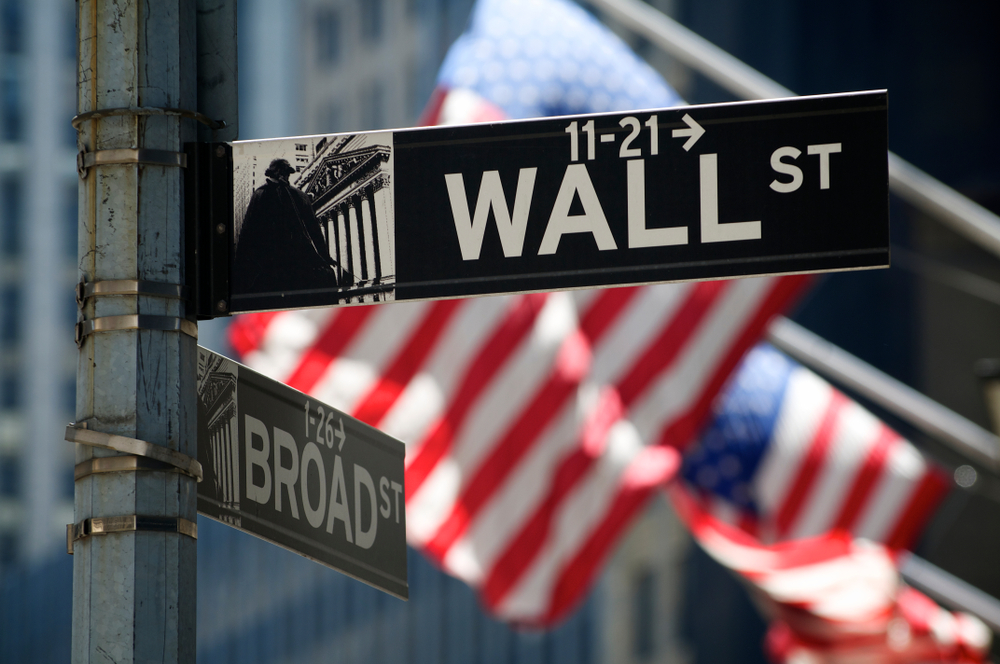Wall Street has often been seen as the epicenter of global finance, attracting ambitious individuals and innovative ideas. However, it’s also been the stage for some notorious scandals that shook the market to its core. From insider trading to accounting fraud, these events have left an indelible mark on the financial world. Let’s dive into ten of the biggest Wall Street scandals that rocked the market, each with its own tale of greed, deceit, and eventual downfall.
1. Bernie Madoff’s Ponzi Scheme: A Tower of Lies

The name Bernie Madoff is synonymous with financial betrayal. Madoff managed to orchestrate one of the largest Ponzi schemes in history, defrauding investors of approximately $65 billion. According to The New York Times, Madoff convinced his clients that they were investing in legitimate funds with consistent returns. However, in reality, he was using new investors’ money to pay off earlier investors, creating an illusion of a profitable venture. The scam unraveled in 2008 amidst the financial crisis, leading to Madoff’s arrest and a 150-year prison sentence. The fallout was catastrophic, with countless investors losing their life savings and confidence in the financial system. Madoff’s scheme highlighted the critical need for transparency and regulation in financial markets.
The impact of this scandal extended beyond financial loss; it shattered trust in investment firms and financial advisors. Many wondered how such a massive fraud could go undetected for so long despite regulatory oversight. Madoff’s story serves as a cautionary tale about the dangers of blind faith in “too good to be true” investments and underscores the importance of due diligence. The ripples from this scandal prompted changes in regulatory frameworks, aiming to prevent similar occurrences in the future. Madoff’s legacy is a stark reminder of the potential for greed to overshadow ethics in the financial sector.
2. Enron Scandal: Accounting Magic Gone Wrong

The Enron scandal remains one of the most infamous corporate collapses in American history. Enron, once a darling of Wall Street, was involved in widespread accounting fraud, using complex financial structures to hide debt and inflate profits. According to The Washington Post, the company’s executives engaged in deceptive practices to maintain Enron’s stock price, which eventually led to its bankruptcy in 2001. The scandal not only wiped out shareholders’ investments but also led to the dissolution of Arthur Andersen, one of the largest auditing firms at the time. Enron’s downfall exposed vulnerabilities in corporate governance and accounting practices.
The aftermath of the Enron scandal was profound, resulting in legislative changes to improve corporate accountability. The Sarbanes-Oxley Act was enacted in 2002 to enhance financial disclosures and prevent corporate fraud. This legislation introduced stricter auditing requirements and increased penalties for fraudulent financial activity. Enron’s collapse served as a wake-up call for businesses and regulators, emphasizing the necessity for transparency and ethical conduct. Today, Enron is remembered as a symbol of corporate greed and the catastrophic consequences of accounting manipulation.
3. The Lehman Brothers’ Fall: A Catalyst for Crisis

Lehman Brothers’ bankruptcy in 2008 was a pivotal moment in the global financial crisis, marking the largest bankruptcy filing in U.S. history. The firm’s downfall was the result of excessive risk-taking and exposure to subprime mortgages, which ultimately led to its collapse. This event sent shockwaves through the financial world, triggering a severe economic downturn. According to BBC News, the failure of Lehman Brothers highlighted the interconnectedness of global financial institutions and the importance of regulatory oversight. The bank’s collapse was a tipping point that forced governments and central banks to intervene to stabilize the financial system.
The consequences of Lehman’s bankruptcy were far-reaching, shaking confidence in financial institutions and markets worldwide. It accelerated the implementation of major regulatory reforms, such as the Dodd-Frank Act, aimed at preventing future financial crises. The Lehman Brothers’ scandal underscores the dangers of unchecked risk and the need for transparency in financial dealings. Investors, regulators, and policymakers learned valuable lessons about the systemic risks posed by large financial institutions. Lehman Brothers’ legacy is a somber reminder of the fragility of the financial system and the importance of proactive oversight to protect the global economy.
4. The Insider Trading Scandals: Greed Behind Closed Doors

Insider trading scandals have plagued Wall Street for decades, with some of the most notorious cases involving high-profile financiers and corporate executives. The illegal practice of trading based on non-public information undermines the integrity of financial markets and unfairly advantages those with privileged access. Notable figures such as Ivan Boesky and Raj Rajaratnam have been embroiled in such scandals, leading to significant media attention and public outrage. These cases expose the challenges of monitoring and regulating insider trading, as well as the ethical dilemmas faced by individuals in positions of power. The allure of substantial financial gains often tempts individuals to cross legal and moral boundaries.
The repercussions of insider trading are severe, including hefty fines, prison sentences, and lasting damage to reputations. These scandals serve as a reminder of the importance of ethical behavior and compliance within financial markets. Regulatory bodies, like the Securities and Exchange Commission (SEC), continue to enhance their surveillance and enforcement mechanisms to combat insider trading. Despite these efforts, the temptation for quick financial gains remains a persistent challenge. Insider trading scandals highlight the ongoing need for vigilance and accountability in maintaining the integrity of global financial markets.
5. The Libor Manipulation: A Benchmark Under Fire

The Libor scandal involved the manipulation of the London Interbank Offered Rate (Libor), a critical benchmark for interest rates worldwide. Several major banks were found guilty of submitting false information to influence the rate for profit, affecting trillions of dollars in financial contracts. The scandal came to light in 2012, leading to significant fines for the banks involved and increased scrutiny of financial benchmarks. The manipulation of Libor exposed weaknesses in the rate-setting process and raised questions about the reliability of critical financial indicators. The impact of this scandal was felt across various sectors, from mortgages to student loans.
In response to the Libor scandal, regulators implemented reforms to improve transparency and accountability in the rate-setting process. The incident underscored the need for robust oversight of financial benchmarks to prevent manipulation and protect market integrity. Libor’s manipulation had far-reaching consequences, damaging public trust in financial institutions and highlighting the systemic risks associated with benchmark rates. The scandal served as a catalyst for the development of alternative benchmarks, aimed at reducing reliance on manipulated rates. Today, the lessons learned from the Libor scandal continue to influence regulatory approaches to financial markets.
6. The Volkswagen Emissions Scandal: Deception on a Global Scale

Though not a Wall Street scandal per se, the Volkswagen emissions scandal had significant financial ramifications and is a vivid example of corporate deceit impacting market confidence. In 2015, it was revealed that Volkswagen had installed software in millions of diesel vehicles to cheat emissions tests, falsely passing regulatory standards. This deception led to a plummet in Volkswagen’s share price and billions in fines and lawsuits worldwide. The scandal exposed the vulnerabilities in regulatory compliance and the lengths some corporations will go to circumvent environmental standards. It also highlighted the critical role of regulatory bodies in safeguarding public interest and market integrity.
The financial cost to Volkswagen was staggering, but the damage to its reputation was even more profound. The scandal led to a broader discussion about corporate accountability and the ethical responsibilities of multinational corporations. It served as a wake-up call for the auto industry and regulators, prompting more stringent emissions testing and monitoring procedures. The Volkswagen emissions scandal is a reminder of the potential market impact of corporate malfeasance and the importance of transparency and ethical conduct. It underscores the necessity for vigilance and accountability to maintain public trust and protect the environment.
7. WorldCom: A Telecommunications Giant’s Deceptive Decline

WorldCom’s downfall in 2002 was a dramatic example of accounting fraud on a massive scale, leading to one of the largest bankruptcies in U.S. history. The telecommunications giant inflated its assets by nearly $11 billion, misleading investors and analysts about its financial health. The discovery of the fraud sent shockwaves through the market, resulting in a collapse of WorldCom’s stock price and massive financial losses for shareholders. The scandal exposed serious weaknesses in corporate governance and financial oversight, prompting calls for reform. It also highlighted the importance of ethical leadership and the dangers of corporate greed and deception.
The fallout from WorldCom’s collapse had significant implications for the telecommunications industry and the broader financial markets. The scandal led to increased scrutiny of corporate financial reporting and contributed to the passage of the Sarbanes-Oxley Act, which aimed to enhance regulatory oversight and accountability. WorldCom’s demise serves as a cautionary tale about the importance of transparency and ethical behavior in business. It underscores the need for robust internal controls and a culture of integrity to prevent fraudulent activities. Today, the lessons from WorldCom continue to influence corporate governance and financial oversight practices.
8. The MF Global Collapse: Risk and Recklessness

MF Global’s bankruptcy in 2011 was a stark reminder of the dangers of excessive risk-taking in financial markets. The firm, led by former New Jersey Governor Jon Corzine, faced a liquidity crisis due to its large bets on European sovereign debt. In a desperate attempt to cover its losses, MF Global misused customer funds, leading to its collapse and the loss of over $1 billion in client money. The scandal exposed significant gaps in financial oversight and highlighted the need for stricter regulations on the use of customer funds. It also raised questions about the role of leadership in managing risk and maintaining ethical standards.
The aftermath of MF Global’s collapse had far-reaching implications for financial markets and regulatory frameworks. The incident prompted calls for reform in the oversight of financial firms and the protection of customer funds. It also underscored the importance of transparency and accountability in managing risk and financial operations. MF Global’s demise serves as a cautionary tale about the dangers of unchecked risk-taking and the importance of ethical leadership. The lessons learned from MF Global continue to influence regulatory approaches to financial markets and the management of client funds.
9. The Wells Fargo Fake Accounts Scandal: Banking on Deception

Wells Fargo’s fake accounts scandal, which came to light in 2016, was a shocking example of unethical business practices in the banking sector. Employees were pressured to meet unrealistic sales targets, leading to the creation of millions of unauthorized accounts without customers’ knowledge. The scandal resulted in significant fines and a loss of trust in one of America’s largest banks. It highlighted the dangers of a corporate culture that prioritizes profits over ethical behavior and customer welfare. The fallout prompted a reevaluation of incentive structures and ethical standards within the banking industry.
The Wells Fargo scandal had significant consequences for the bank’s leadership and reputation. It led to the resignation of top executives and increased regulatory scrutiny of banking practices. The incident underscored the importance of ethical leadership and a commitment to customer service in maintaining trust and credibility. Wells Fargo’s fake accounts scandal serves as a cautionary tale about the potential pitfalls of aggressive sales tactics and the importance of corporate responsibility. The lessons learned continue to influence banking practices and regulatory approaches to prevent similar occurrences in the future.
10. The GameStop Short Squeeze: A Modern-Day Market Frenzy

The GameStop short squeeze of 2021 was a dramatic and unprecedented event that captivated the financial world and beyond. Driven by a group of individual investors on platforms like Reddit, GameStop’s stock price skyrocketed as they orchestrated a massive short squeeze against institutional investors. The event exposed the power dynamics between retail investors and Wall Street and raised questions about market manipulation and the role of social media in financial markets. The frenzy resulted in significant losses for hedge funds and highlighted the democratization of investing and the influence of online communities.
The GameStop saga had far-reaching implications for regulatory frameworks and the future of investing. It sparked a debate about market fairness, transparency, and the potential for market manipulation in the digital age. The incident underscored the importance of understanding market mechanics and the risks associated with speculative trading. GameStop’s short squeeze serves as a reminder of the evolving landscape of investing and the need for regulators to adapt to new challenges. The lessons from this event continue to shape discussions about market regulation and the role of individual investors in financial markets.
This article is for informational purposes only and should not be construed as financial advice. Consult a financial professional before making investment or other financial decisions. The author and publisher make no warranties of any kind.








